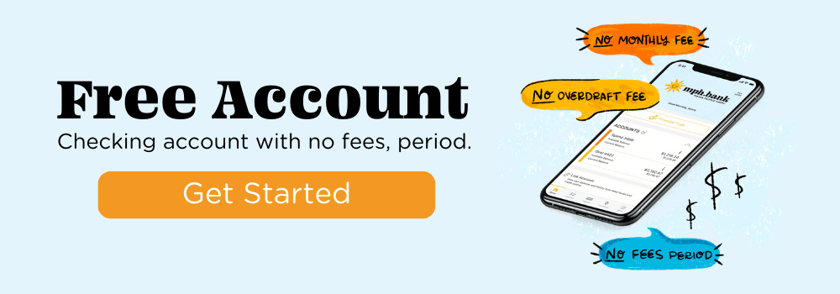“An investment in knowledge pays the best interest.” — Benjamin Franklin
And in 2025, that “interest” comes in the form of clarity, confidence, and control over your financial life.
Let’s be honest—finance isn’t exactly a natural language. For many, it feels more like decoding an alien dialect. APR, ROI, ETFs, compound interest... It's no wonder financial anxiety is through the roof. In fact, 73% of Americans say finances are their number one source of stress, according to the American Psychological Association.
That's not okay. It doesn’t have to be this way.
But here’s the thing: when your brain says “What the heck is a REIT?”, and your budget sheet starts looking like quantum physics, there’s one place you can go that never talks down to you, never overwhelms, and never leaves you hanging.
That place? Investopedia.
This isn’t just some dusty financial dictionary. Investopedia is a powerhouse of clear, up-to-date, actionable financial content designed to help real people make real decisions with confidence. Whether you're a curious beginner or a spreadsheet-wielding investing pro, it's a tool you should have in your digital toolbox.
In this post, we’re digging into why Investopedia matters—and exactly how to use it to upgrade your financial IQ, take smarter action, and stop second-guessing your money decisions.
Let’s unlock the vault.
1. What Is Investopedia (Really)?
Most people think Investopedia is a site you land on after Googling "What is a Roth IRA?” But it’s far more than that.
Founded in 1999, Investopedia has become one of the most trusted online sources for financial education. It's owned by Dotdash Meredith (yes, the same company behind People, Real Simple, and The Spruce), which means their editorial standards are serious. Content isn’t tossed up by a bunch of anonymous bloggers. It's written and fact-checked by certified financial professionals, CFPs, CPAs, PhDs—you name it.
Investopedia's Secret Sauce? Accessibility Meets Accuracy.
You get smart, trustworthy financial advice without needing a finance degree. Definitions are clear. Guides are thorough. Examples are practical.
In short? It’s finance explained like you’re a capable adult, not a confused child.
2. How to Actually Use Investopedia: Pro-Level Tips
If you’re just hopping on Investopedia to look up a term and leave, you’re leaving serious value on the table. Let’s unlock how to use the site like a pro.
Use the Term Definitions Like a Crash Course
Investopedia’s dictionary isn’t just a list of jargon. It’s mini education modules disguised as definitions. For example:
Look up "Capital Gains Tax." You won’t just get a dry definition. You’ll get:- Examples
- Federal vs. state implications
- Real-world applications
- Strategic tips to minimize taxes
Pro tip: Bookmark terms you don’t fully understand. Revisit them later. Turn Investopedia into your personal financial glossary.
Dive Into the Tutorials (Seriously, They’re Hidden Gold)
Investopedia’s tutorials and "explainer" articles are some of the best-kept secrets on the site. Whether it’s:
- How to start investing with $1,000
- How to budget when you hate spreadsheets
- How to diversify like a pro
…these aren’t fluff. They walk you through the why, the how, and the what to do next.
Bookmark these and build a DIY financial course for yourself. Yes, for free.
Use the Simulators and Quizzes to Test Yourself
Ever wonder how you’d actually do if you tried trading stocks?
Investopedia offers a powerful stock market simulator that mirrors real-world conditions. It’s an incredible way to practice investing without losing real money. Perfect for beginners and anyone who wants to test new strategies.
And don’t skip the quizzes. They’re short, punchy, and useful for checking your knowledge gaps.
Follow the News Section—But Smarter
The news section isn’t just headlines. It's context-rich financial reporting with no hype, no drama.
Want to know how the latest Fed rate hike affects your savings account, or what new legislation might mean for your taxes? Investopedia breaks it down. No yelling. No charts on fire.
Use it as your filter to cut through the noise of the financial media circus.
Use Cases: What Investopedia Can Do for YOU
Let’s make it real. Here are six highly specific, real-world ways Investopedia can help you right now.
You're Thinking About Buying a Home.
Use Investopedia to:
- Learn how mortgages work (beyond just the rate).
- Understand property taxes and escrow accounts.
- Compare types of home loans with confidence.
- Calculate what “affordable” really means.
You Just Got a Raise and Want to Invest Smartly.
Investopedia can help you:
- Compare brokerage accounts.
- Understand index funds vs. ETFs.
- Calculate capital gains and tax impact.
- Build a long-term portfolio strategy.
You’re Starting a Business.
This one’s big. Use Investopedia to:
- Understand LLC vs. S-Corp pros and cons.
- Learn about startup funding options.
- Grasp cash flow, P&L, and business taxes.
- Master the basics of bookkeeping and financial planning.
You’re Nearing Retirement.
This is crunch time. Investopedia can help you:
- Learn how to structure withdrawals.
- Minimize taxes on Social Security.
- Plan for RMDs (required minimum distributions).
- Evaluate annuities, pensions, and long-term care options.
You Want to Improve Your Credit.
Investopedia will walk you through:
- Credit scoring factors (with examples).
- The truth about credit utilization.
- Smart ways to build or rebuild credit.
- Understanding the fine print in credit reports.
You Just Want to Feel Less Overwhelmed.
This is where Investopedia shines. Start a habit: spend 10 minutes a day reading one topic. That’s it. Your financial literacy will skyrocket in a month.
4. Why Investopedia Is Different from Other Finance Sites
You’ve got NerdWallet, The Motley Fool, Yahoo Finance, CNBC... So why Investopedia?
No Sales Pitch Disguised as Education
Some financial sites exist to sell you something. Their “education” is often a pipeline to a product. Investopedia stays impressively neutral.
Editorial Transparency
You’ll find clear sourcing, updated timestamps, and conflict-of-interest disclosures. That’s rare—and valuable.
Deep Bench of Experts
The writers are credentialed. The editors are experienced. And the content is regularly reviewed and updated. That’s huge in a world where financial laws and best practices shift constantly.
5. Investopedia Academy: Yes, It’s Worth It
Did you know Investopedia has a paid course platform?
It’s called Investopedia Academy, and it’s robust. Think:
- Excel for Finance
- Cryptocurrency for Beginners
- Become a Day Trader
- Finance for Non-Financial Managers
Courses are self-paced and taught by real-world pros. For a few hundred bucks or less, you get a ton of value. It’s not for everyone, but if you want to go deep in one area? Worth every penny.
Investopedia Highlights mph.bank's Free Account
In an article in April, Investopedia mentioned mph.bank’s Free Digital Checking Account as a solid option for consumers who are looking for a high-interest, digital-first experience without the burden of typical banking fees.
You can read the full article here & find our Free Account as one of Investopedia’s Best Checking Accounts for May 2025.
A Closer Look at the Free Account
The account offers features that align with what many people are looking for in a checking account today—particularly those who prefer to bank entirely online.
Some of the key elements include:
- No monthly maintenance fees
- No minimum balance requirements
- Interest-earning capabilities
- Nationwide access to a large network of fee-free ATMs
- Early access to direct deposit
- Backed by Liberty Savings Bank, an FDIC insured community bank
It’s a straightforward, digital-first account designed for flexibility and ease of use.
What It Reflects
This kind of mention from a respected source like Investopedia is meaningful—not just as recognition, but because it supports the idea that financial products can (and should) be simple, transparent, and designed with the user in mind.
If you’re exploring your own checking account options, this might be one worth looking into. You can find more details about it here.
Make Investopedia Your Financial Wingman
Look, nobody’s born knowing this stuff. But you’re also not stuck in the dark forever.
Investopedia is that friend who explains everything calmly, clearly, and without judgment. It's the rare financial resource that assumes you’re smart—but maybe just need a little help with the lingo, the logic, or the big picture.
So go ahead. Bookmark it. Explore it. Build a habit around it.
Because whether you’re planning your first budget or your fifth rental property, Investopedia is a financial resource that really does matter.
And it might just change your financial future.
Why did the little boy eat his cash?
It was his dinner money! Sign up to receive important information on banking, financial tips, and jokes like this directly to your inbox










